When we think of how food cultures are formed, many of us envision the in-person passing down of traditions from parent to child or chef to sous-chef. Yet the history of cuisine isn’t purely shaped by observation, osmosis or hands-on education. In the simplest sense, handwritten recipes have long formed a link from generation to generation. And in the case of professional cooking—French cuisine, most notably—the codification of techniques in encyclopedic cookbooks was the key ingredient that gave French chefs a leg up in the global community of cooks.
For Don Lindgren of Rabelais, an antiquarian bookshop in Biddeford, Maine, these culinary texts serve a purpose even more expansive than the preservation of recipes. Widely considered a leading buyer and seller of antiquarian cookbooks and culinary ephemera, his work consists not just in seeking out rare material, but in helping others understand the role those books played in the lives of both their individual owners and society at large.
“I am very interested in the first appearances of things or in the form of books,” Lindgren explains. “For example, what were the first American cookbooks featuring a certain cultural cuisine—like Nigerian or Kenyan cooking? Or how did the function, shape and size of cookbooks differ from the 1550s to the 1950s?”
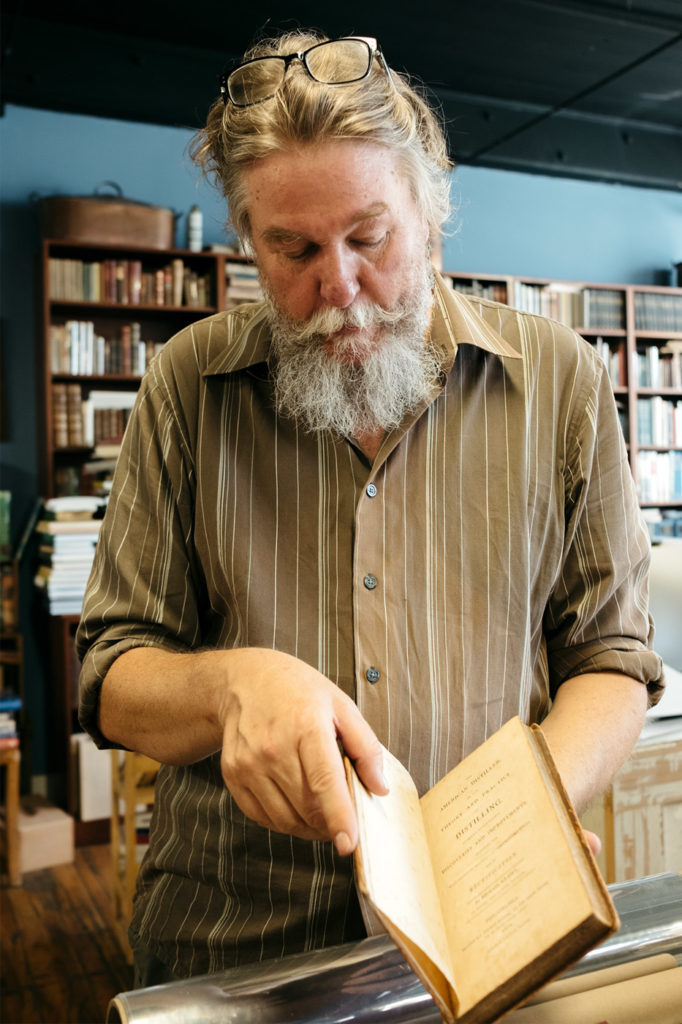

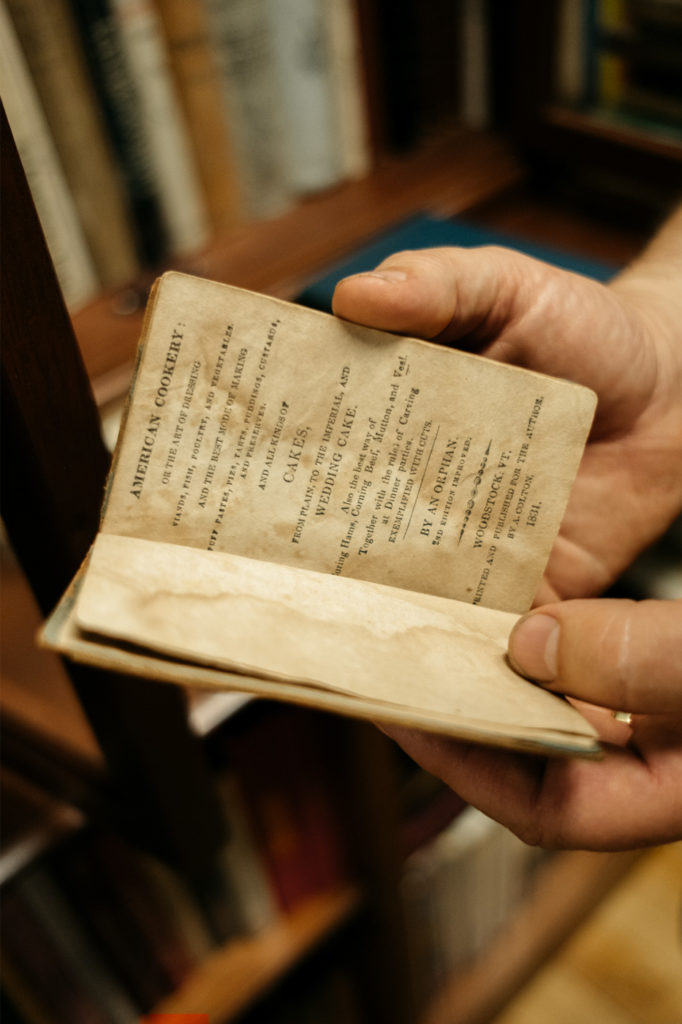

For those who work in the industry or simply follow food news, Lindgren’s work epitomizes the growing acceptance of food as culture. In fact, with ninety percent of his sales going to institutions ranging from the New York Public Library, to Harvard University, or the UCLA College of Medicine, many of the texts Lindgren sources will directly bolster the academic study of cooking and culinary history as an integral part of cultural heritage.
Fortunately, you don’t have to be a world-renowned institution or high net worth individual to benefit from Lindgren’s collection. One of the integral reasons he and his wife Samantha founded Rabelais as a physical bookstore was to create a vertically integrated, accessible shop dedicated to a single subject matter. “There are all sorts of wonders that exist in the form of printed paper, but the merchandising of those books can be somewhat underwhelming,” he explains. “At Rabelais, we welcome people coming in to buy the latest cookbook, but they will also see slightly harder-to-find books that are just a bit more expensive or have an opportunity to save on used books. And then there are the rare or older materials, which give a context for more recent books—because new ideas don’t come out of nowhere.”
Where cookbooks come from or how long they have existed is something most home cooks rarely stop to ponder. “People seem to have such a short sense of time,” Lindgren laughs. “I hear someone talking about Julia Child or Fanny Farmer as if those texts are ancient, but for me, those are very modern authors. I love being able to put a book that is 100 to 500 years old in someone’s hands and to let them simply experience the fact of holding it—to see what they realize.”
Admittedly, for Lindgren himself, chasing down rare cookbooks wasn’t always the obvious path. As a high school student, one of his first jobs was at a New York location of (the then-small business) Barnes & Noble. From there, he worked at Powell’s in Chicago throughout college and grad school, increasingly training in the antiquarian book trade. Eventually, he returned to New York as an independent seller of avant-garde art texts, including work for prestigious high-end dealers. But when he and his wife—who was pursuing a second career as a pastry chef at the time—decided to move to Maine, he began to feel disconnected from the subject matter of conceptual art.
“The market and the sources had never been local, so leaving New York wasn’t endangered by a move to Maine,” Lindgren recalls. “[But once I moved,] I wanted to be surrounded by something more real—something related to the food, farming and fishing that are all so present in Maine. My wife and I literally walked by an amazing space in downtown Portland and over lunch, we wrote up a business plan [for Rabelais’ initial location] on a napkin.”
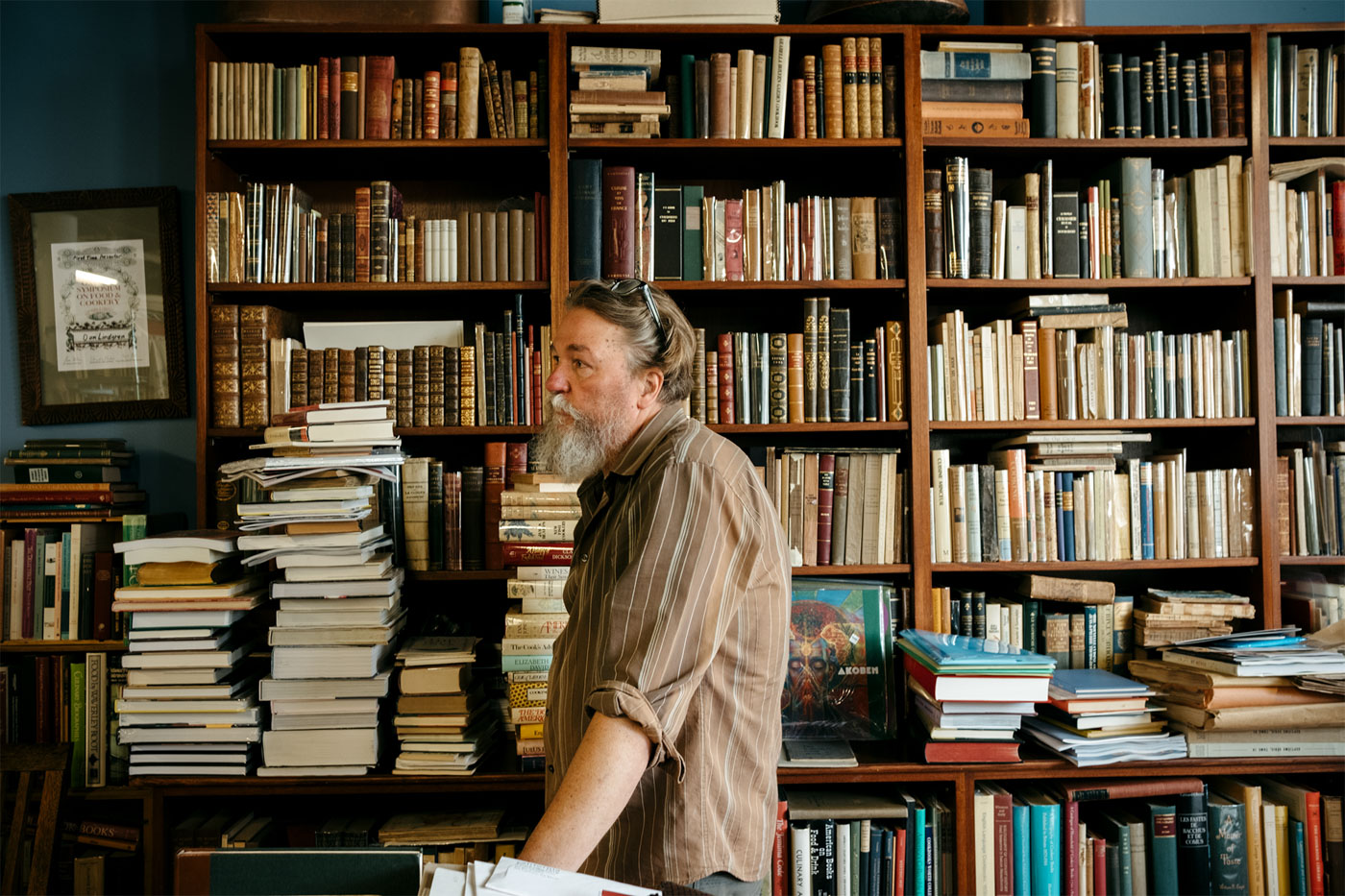
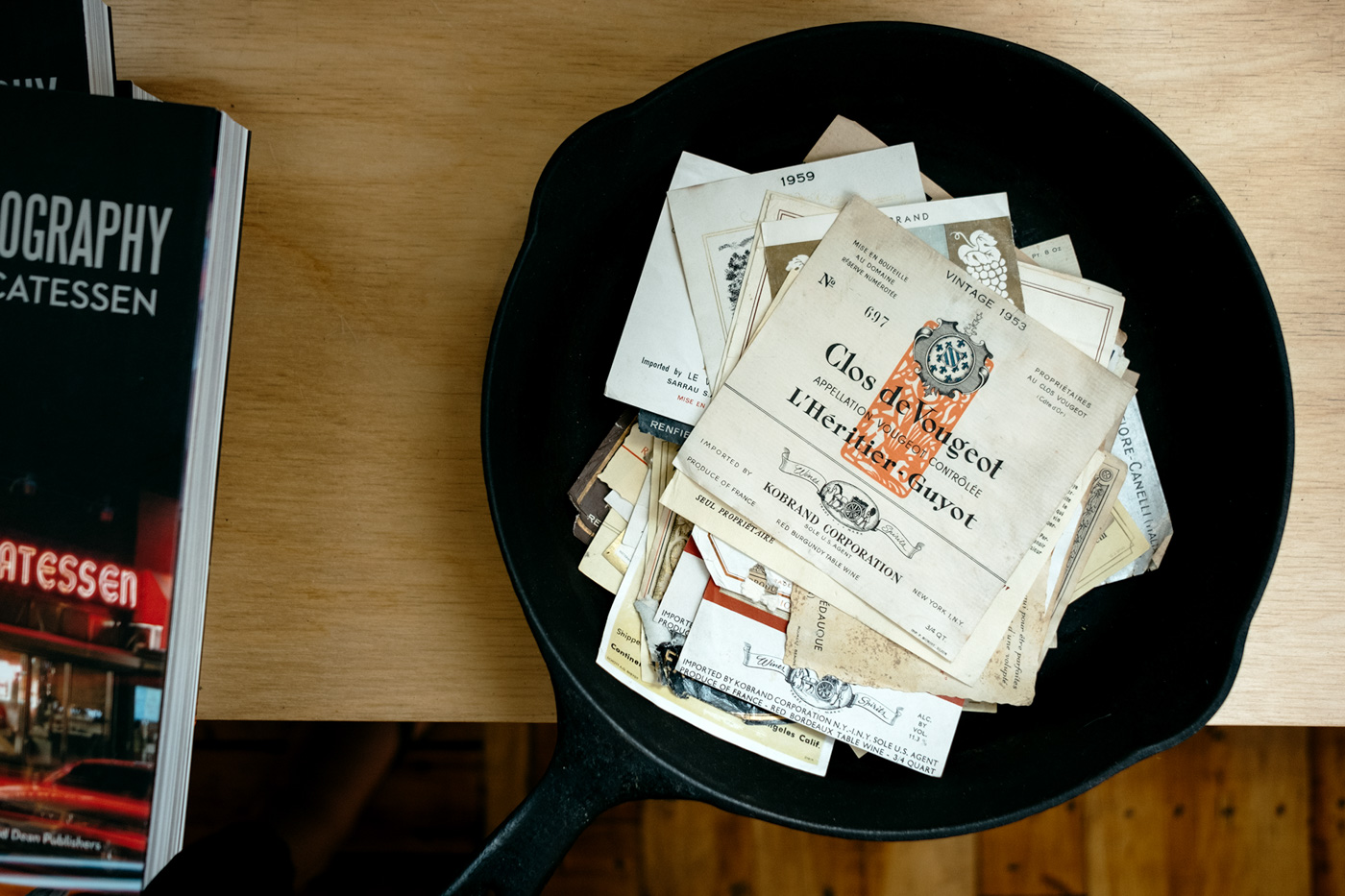
The first shop opened in 2006, at a time when Portland’s restaurant culture was rapidly evolving. For young chefs in the city, Rabelais became a destination for research, with the Lindgrens playing a significant role in many locals’ culinary education. “A lot of the people who came in when we first opened have gone on to open their own businesses or restaurants,” Lindgren notes.
From fermentation to butchery, distilling to foraging, Lindgren has witnessed the real-time evolution of food trends through the inquiries of his clientele. He also is a collector of a wide range of culinary ephemera, such as vintage labels from consumer packaged goods or restaurant menus. “Especially for academic institutions, ‘aesthetics’ are less important. Fast food-related objects are just as important [as high-end cuisines] in the study of food history,” he says. “And the cultural trend toward diversity also has an impact, as we are now seeing a growing interest in materials from non-Western regions of the world.”
Beyond the printed information each text contains, cookbooks also boast an unprecedented “evidence of use” in comparison to other literature. “They accrete more traces of life than almost any other book. People write in them, edit or amend recipes—even jam other papers inside,” Lindgren explains. “Sometimes the bindings rip and they are sewn back together. But that doesn’t diminish value, because it demonstrates the life that a single book might have within a kitchen or its travels in being passed from one owner to another.”
Of course, finding the value in a well-worn pile of paper requires a skilled eye. Lindgren recently sold a group of manuscripts that belonged to a single Quaker family in Pennsylvania, ranging from the years 1780-1850. What began as a pile of loose, hand-written scraps turned out to be six or seven household texts used by three generations of the same family. “I’ve never seen better evidence of how people collected and compiled recipes—whether slips of paper from family and friends or, over time, the transcribing of a particularly prized recipe from one book to another,” says Lindgren.
While the discovery of such texts may be most valuable to academic institutions or private collectors, the larger impact is not lost for individuals. In Lindgren’s world, our crumbled, stained family recipes become more than instructions for cooking. He also sees an expanding role for the modern cookbook: “[They] have really become desirable objects, with increasingly elaborate designs that reflect that shift. [In our electronic age], we rarely have enough time or space for creative pursuits, but food is an opportunity for creativity that is always right there.” So whether penned by a chef or your great-great-grandmother, a well-written recipe could be the spark for your next great adventure.
Additional Reading: Explore what drives Carly DeFilippo, our contributing writer, on our Journal’s Contributor Spotlight series.





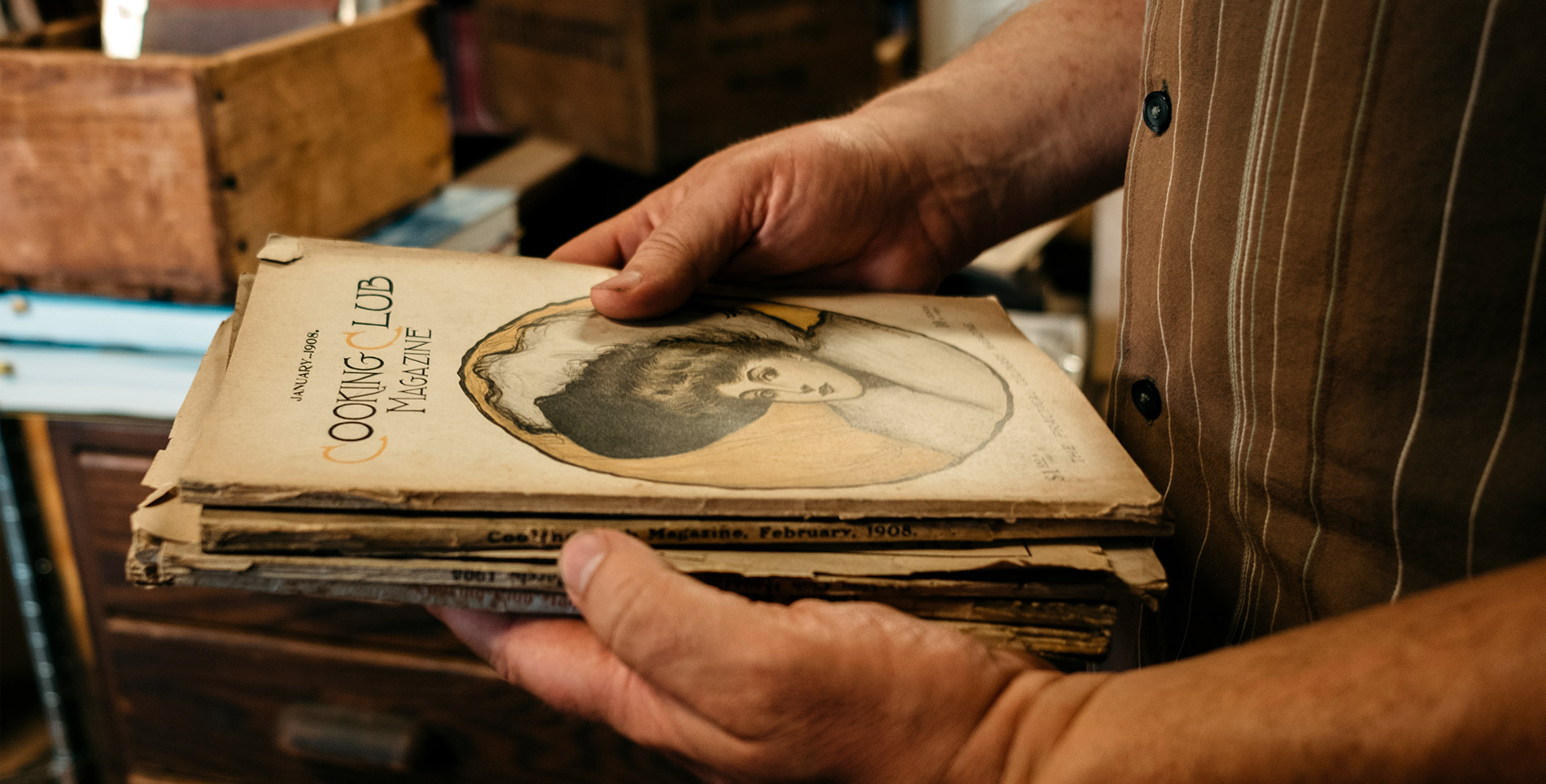

Our comments section is for members only.
Join today to gain exclusive access.